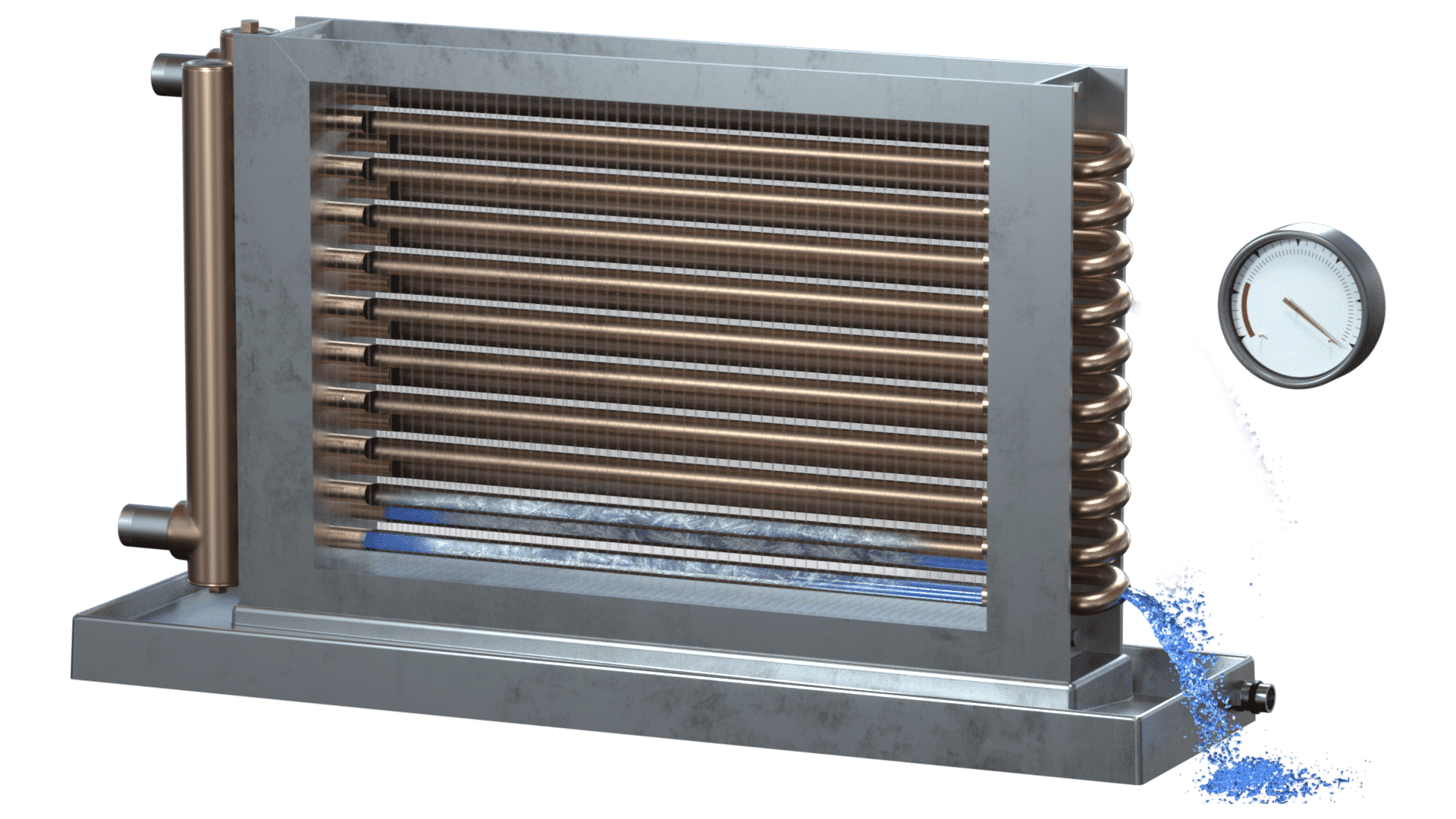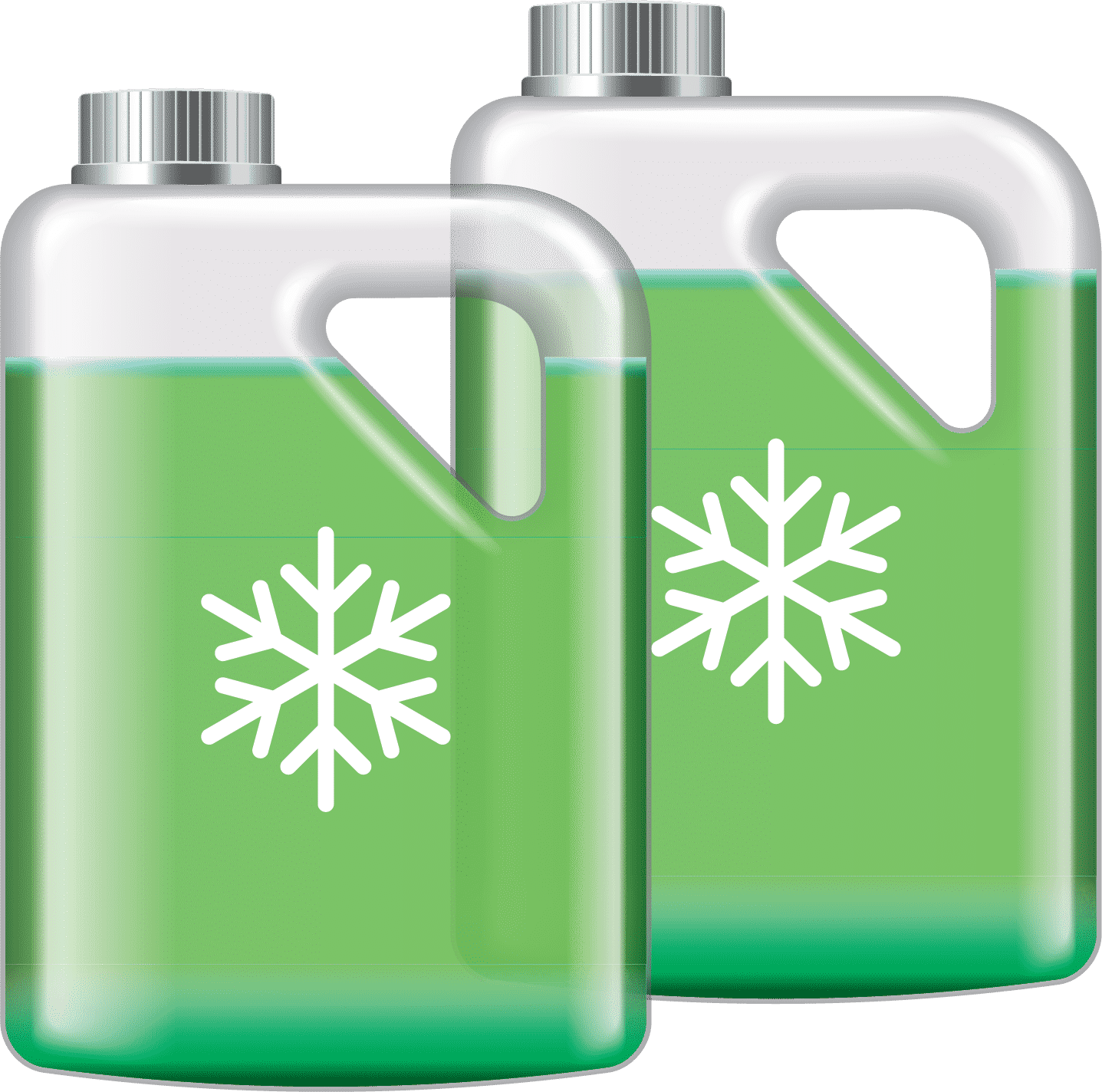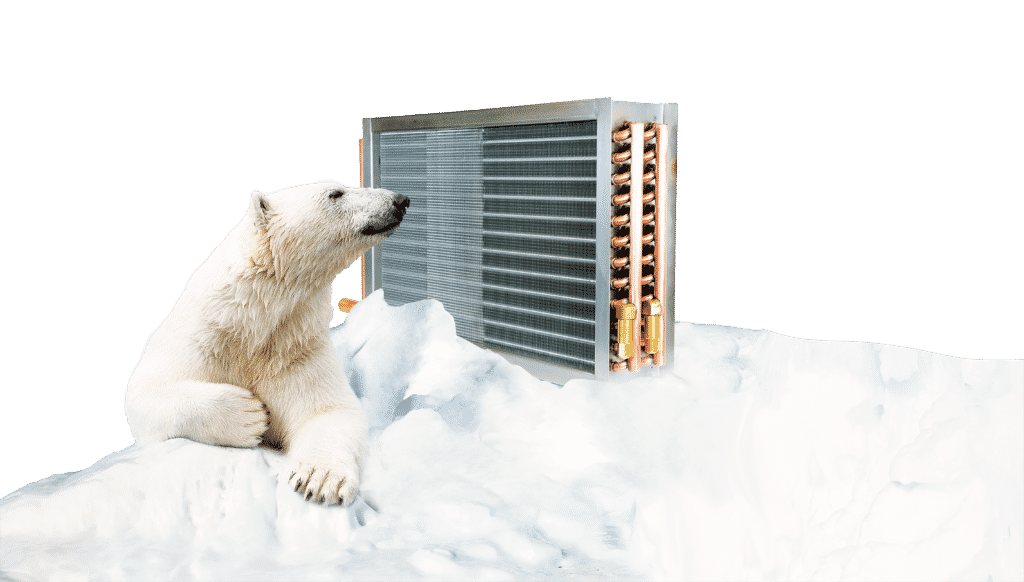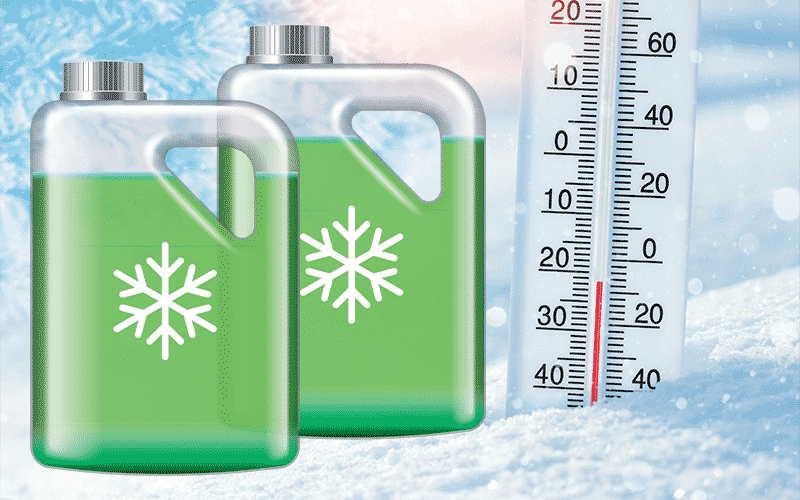Glycol
In HVAC Systems
Glycol is fluid commonly used in hydronic heating systems in cold climates to help prevent freeze damage. Simply put, glycol is antifreeze.

Coils that contain glycol can still freeze!
When glycol is improperly mixed it can cause slugs of water to travel throughout the piping. These water slugs are subject to freezing and can split a copper line.
Types of Glycol
Ethylene
Ethylene glycol has a high freeze point but it is highly toxic and should not be used in applications where water could be contaminated.
Proplylene
Propylene glycol is less toxic then ethylene glycol but with less heat transfer and a higher viscosity.

Have You Considered?
While glycol has a low freeze point, other factors should still be considered before using it for HVAC coil freeze protection such as energy + maintenance costs, toxicity levels, and corrosiveness.
Energy Costs

Toxicity

Corrosion

Did you know switching from glycol to water can save you 5-10% on energy costs?
Discover how much glycol is truly costing your facility and build a business case for switching to water protected by Cooney Freeze Block™ coils.



